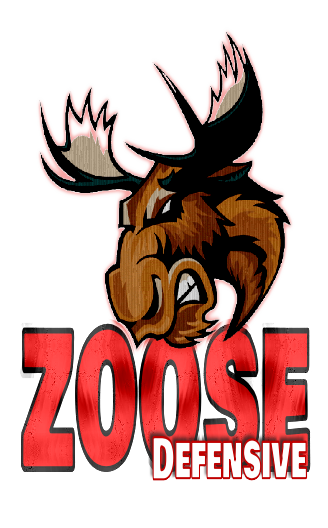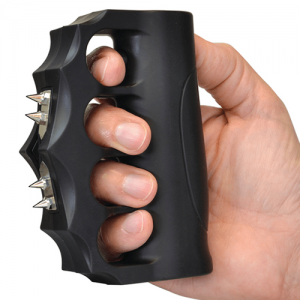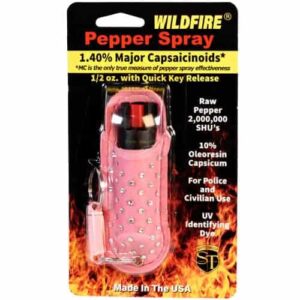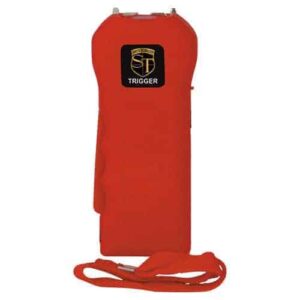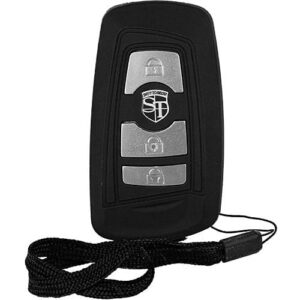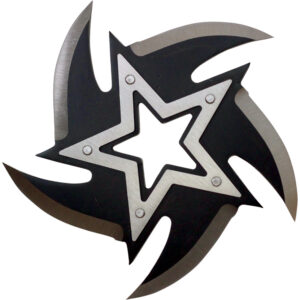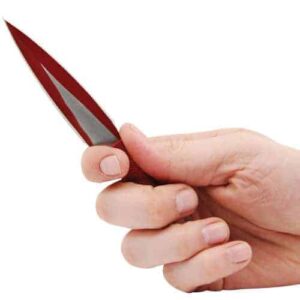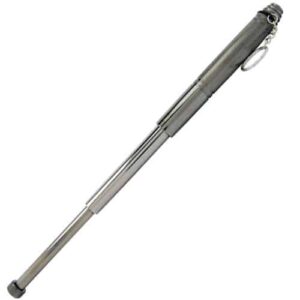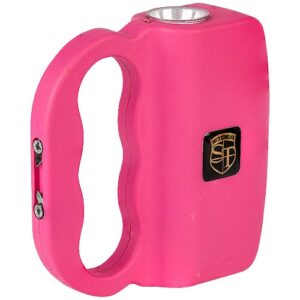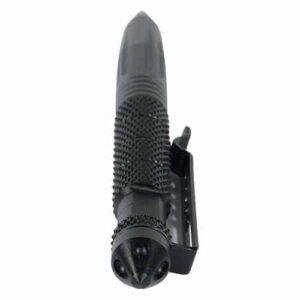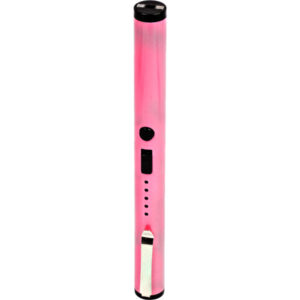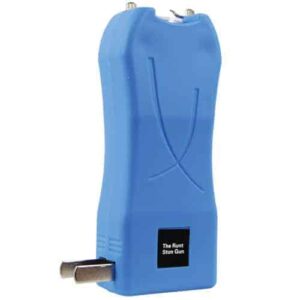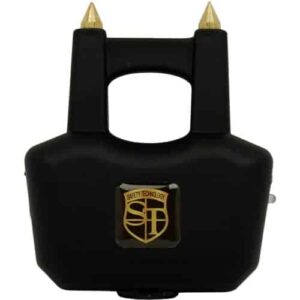Getting to know about concealed self-defense weapons can be a game-changer for your personal security strategy. In this enlightening article, you’ll explore a variety of covert self-defense tools designed to be hidden, yet accessible in times of need. From discreet yet powerful weapons to unconventional tools with dual purposes, you’ll be surprised at the alternatives available to enhance your safety. Remember, ensuring your security doesn’t mean you have to be visibly armed at all times. It’s all about strategically mastering the art of subtlety while remaining ready to protect yourself whenever necessary. Enjoy the journey towards amplifying your self-defense tactics!
Table of Contents
ToggleOverview of Concealed Self Defense Weapons
concealed self-defense weapons are crucial tools designed for personal protection. These items are meant to be inconspicuous and easily carried, providing an added sense of security in various situations.
Definition of Concealed Self Defense Weapons
Concealed self-defense weapons are tools that are discreetly carried or hid on one’s person for self-defense purposes. These weapons can range from firearms and knives to non-lethal items like pepper spray and stun guns. The main goal of a concealed weapon is to enable you to defend yourself against a potential attack without drawing attention to the fact that you’re armed.
Importance of Concealed Self Defense Weapons
Self-defense weapons are particularly significant because they offer a means of protection in a vulnerable situation. With one at your disposal, you’re supplied with the power to deter or reduce the potential harm of an assault. These weapons serve as a safety net, providing peace of mind when moving in unfamiliar or potentially dangerous areas.
Legal Considerations
While concealed weapons are widely used for self-defense, it’s essential to understand the prevailing laws and legality surrounding their use. Different places have varying laws regarding the owning, carrying, and usage of self-defense weapons. Understanding these laws is vital to ensure you’re within your legal rights while protecting yourself.
Types of Concealed Self Defense Weapons
The realm of concealed self-defense weapons is vast, offering a myriad of choices suitable for different individuals and circumstances.
Pepper Spray
This is one of the most popular self-defense weapons due to its ease of use and effectiveness. Standard pepper spray canisters are small enough to fit in a purse or pocket and the resulting spray can disable an attacker temporarily, giving you time to escape.
Tactical Pens
Dubbed the ‘modern-day sword in a stone,’ a tactical pen is a handy tool for self-defense. Designed to look and function like an ordinary pen, it doubles up as a weapon capable of causing serious harm if used correctly.
Stun Guns
stun guns are discrete devices that deliver a high-voltage shock, incapacitating your assailant temporarily. They’re designed to be compact and easy to conceal, making them an excellent choice for personal defense.
Hidden Blades
Hidden blades are typically incorporated into everyday items like combs or pens, making them supremely discreet. While they require a certain level of skill to use effectively, they can be lethal under the right circumstances.
Concealed Firearms
While not for everyone, a concealed firearm can be the most effective self-defense weapon. However, carrying one requires extensive training and also has significant legal implications.

Benefits and Drawbacks of Concealed Self Defense Weapons
Every weapon has pros and cons because no single tool can be all things for all users or situations.
Advantages
Concealed self-defense weapons provide immediate protection, offering you an advantage in a situation where you’re under a direct threat. They’re also designed for easy access and quick action. Not to mention the psychological reassurance it offers just by having it.
Limitations
On the flip side, every self-defense weapon requires proper training to be effective. Some might inflict harm upon the user if not handled correctly. Additionally, lethal options like firearms or blades can have serious legal implications if used improperly.
Choosing the Right Concealed Self Defense Weapon
Before purchasing a weapon for self-defense, it’s important to consider several crucial factors.
Assessing Personal Needs and Preferences
The right self-defense weapon for you depends on your personal situation, your comfort level, and your lifestyle. Are you looking for something non-lethal? How easily can you access and use the weapon under stress?
Understanding Legal Requirements
Different areas have different laws surrounding concealed weapons. It’s essential to familiarize yourself with these laws before making a purchase.
Considering Ease of Use
A simple, easy-to-use weapon is generally more effective in a high-pressure situation. You should choose a weapon you can easily manage and operate.
Evaluating Effectiveness
The objective of a self-defense weapon is to protect. Research and understand the weapon’s capabilities and whether they align with your needs before buying.
Considering Portability and Concealment
The best self-defense weapon should be small enough to carry without discomfort or detection.

Training and Safety Precactions
Even the most effective self-defense weapon is only as good as the person using it. Training is essential to ensure that you can use your weapon effectively and safely.
Importance of Training
Regardless of the type of weapon you choose, training is paramount. The right training helps you react appropriately in a high-pressure situation.
Seeking Professional Guidance
A professional trainer can provide tips on how to conceal and use your weapon properly. They can also guide you on the best practices for your particular weapon.
Practice and Familiarity
Practice is crucial in gaining familiarity with your weapon. The more comfortable you are with your weapon, the more natural your reaction will be in an actual self-defense scenario.
Safety Measures
Every weapon carries inherent risks, and it’s essential to understand and follow safety procedures to prevent accidental harm.
Legal Considerations of Concealed Self Defense Weapons
Legal considerations can’t be overlooked when dealing with self-defense weapons.
Laws and Restrictions
Different jurisdictions have different laws regarding concealed weapons. Research and comply with the laws of your area to avoid legal issues.
Permit Requirements
Some weapons, like firearms, usually require a permit for legal ownership and concealed carry. Always check and follow the necessary procedures.
Responsibilities and Liabilities
When you choose to carry a self-defense weapon, you take on responsibility for its use. Misuse can lead to severe legal consequences, so it’s important to understand your responsibilities and liabilities.

Concealment Options for Self Defense Weapons
How you choose to conceal your weapon can be as significant as the weapon itself.
Clothing and Accessories
Pocketed clothing, specially designed holsters, and accessories like belts and purses can help conceal your weapon.
Everyday Objects
Some weapons are designed to imitate everyday objects, like pens or keys, adding a layer of concealment.
Specialized Concealment Products
Numerous products are specifically designed to aid in the concealment of self-defense weapons. This includes undercover shirts, hidden compartment purses, and ankle holsters.
Pros and Cons of Popular Concealed Self Defense Weapons
Each weapon comes with its inherent strengths and limitations.
Pepper Spray
Pepper spray is compact, easy to use, and highly effective. However, it has a short-range, and wind can reduce its accuracy.
Tactical Pens
Armed with a discrete design, a tactical pen can be a potent defense weapon. However, its use requires skill and precision.
Stun Guns
Stun guns can immobilize an attacker immediately, but they require close contact and might be prohibited in some areas.
Hidden Blades
Hidden blades provide element of surprise, but they come with high risk due to their lethal nature and legal restrictions.
Concealed Firearms
Concealed firearms offer high stopping power, but they demand extensive training and carry major legal responsibilities.

Concealed Self Defense Weapons for Different Threat Scenarios
Different situations call for varying defense tactics and tools.
Street Attacks
A small, easy-to-conceal weapon like pepper spray or a stun gun can help deter an attacker on the street, without alerting them that you’re armed.
Home Invasion
When defending your home, a more powerful weapon, such as a concealed firearm, may be more appropriate.
Carjacking
In a confined space like a car, a compact, close-range weapon, like a tactical pen or hidden blade, can be very effective.
Traveling
When you’re traveling, particularly in unfamiliar areas, a non-lethal, easy-to-conceal weapon like pepper spray can offer peace of mind.
Running or Jogging
For those who love running or jogging, a small and lightweight weapon is ideal. Purpose-made running accessories may also include concealed compartments for such devices.
Conclusion
Your safety is a top priority, and having a concealed self-defense weapon can provide a sense of security. However, it’s vital to choose a weapon that you’re comfortable with, can easily carry, and is effective. Furthermore, always familiarize yourself with the legal requirements, and invest time in training. Armed with the right knowledge and readiness, you can confidently safeguard yourself in various situations.
